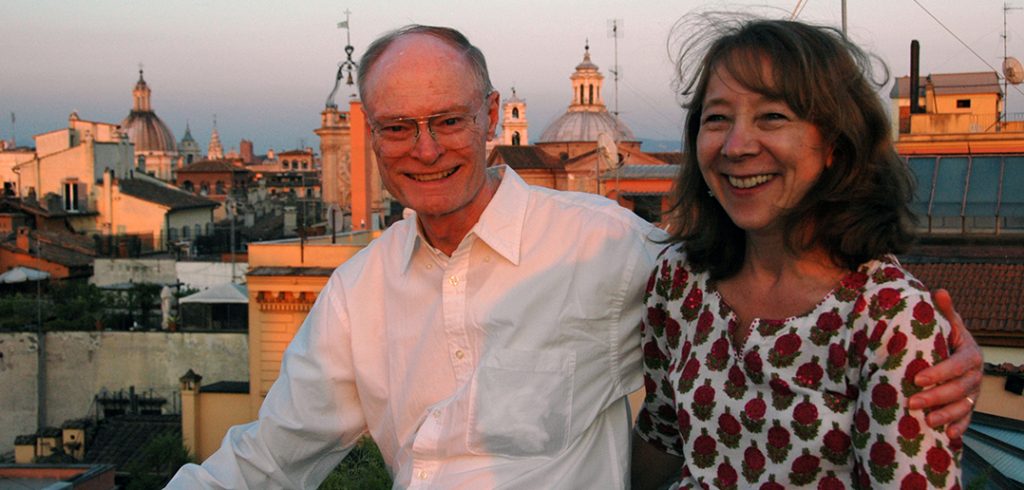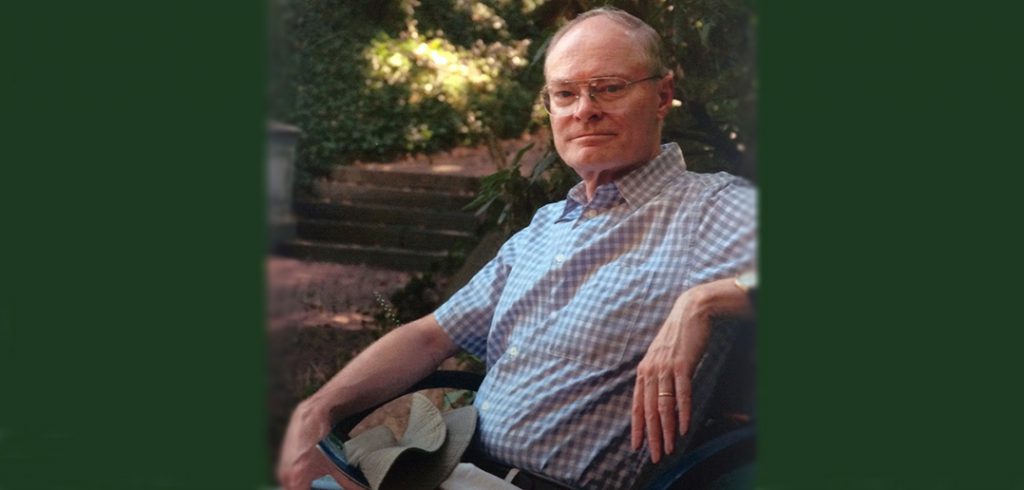“He left behind a large number of students who are thinking more rationally because of him, and colleagues who learned what it means to be a gentleman scholar,” said Gabelli School Professor Falguni Sen, Ph.D., head of Fordham’s Global Healthcare Innovation Management Center. “I am one of those colleagues and I shall miss him dearly.”
A professor of management systems at Fordham, Egelhoff was well known as an organizational theorist who believed that how firms process information lay at the foundation of effective decision-making. Before academia, he worked at Exxon, which Sen said provided insight into global firms. He was a pioneer in the area of studying the effectiveness of different organizational structures in multinational firms.
Spanning Practice and Academia
“He had a lot of credibility because he could span the world of practice and the world of scholarship in a very credible way,” said Gabelli School Dean Emeritus David Gautschi, Ph.D., the Joseph Keating, S.J. Professor of Marketing. “He was a true gentleman, elegant and unflappable, strong-willed yet tolerant, a wonderful colleague.”
Gautschi said his business career gave Egelhoff a lot of clout beyond the academy. In particular, he was an early and outspoken critic of matrix structures, which distribute responsibilities to a variety of managers in a web-like manner rather than the traditional linear/hierarchical distribution.
“People at the margins have responsibilities and many organizations could be over-matrixed. All these people with responsibilities amount to a lot of chiefs and not enough Indians,” said Gautschi. “Organizations get complex at just two people and he had a clear-eyed view of [matrix structures’] limits and the problems it would produce.”
Yet, Sen noted, Egelhoff wasn’t so fixed in his thinking as to dismiss the trend altogether.
“He evolved from disliking the fads of transnationalism that made matrix structures so popular to wanting to correct the inefficiencies of information processing in such structures,” said Sen.
Egelhoff’s wife, Laura Egelhoff, concurred that despite his convictions, Egelhoff could be convinced otherwise.
“He had all these things he would defend, but he did like to bounce ideas off others and he could change his mind,” she said.
Debating with Peers Overseas
In the days following his death, she said that she was a bit taken aback by the letters of sympathy written by scholars from around the U.S., the United Kingdom, France, Sweden, and Germany. She said that she was unaware of his constant deliberation with academics worldwide.
“It is surprising how people have responded because he was not very emotional, my impression was that people didn’t really know him,” she said.
At home, Laura said he was a very loving person with family, particularly toward her family in Argentina and his sister and nephew near Boston.
When the two traveled the world, she said, he took great interest in wine, food, art, and architecture. His taste veered toward the classical, though he was curious about the theories behind modernism.

No Purpose Without Understanding
“He liked to understand the countries and things he was seeing,” she said. “If there was no understanding there was no purpose. That’s the way he looked at art.”
From Palladian villas in Italy to the vineyards of Argentina, Egelhoff brought his curiosity and penchant for research everywhere. He approached everything with a desire to understand the systems behind them.
“He liked to know about wines and read about them when we visited vineyards in Argentina,” she said, adding that knew all about the regions the grapes came from in Europe as well.
Not surprisingly, Egelhoff took the same approach to his own diagnosis of lung cancer. She said that when she called to cancel a dermatologist appointment for him after his death, she received a call back from the doctor who told her he had tears in his eyes at the loss of someone so knowledgeable. He confirmed that her husband had full insight into his condition.
“Even in his own sickness he was very pragmatic and he didn’t want to have a bad quality of life. He figured out he was going to die, he wanted to die at home in peace and without futile medications,” she said. “He had a very dignified end.”
Likewise, he had strong convictions about spirituality. She said he practiced as a Lutheran, and was even reading the works of Martin Luther in the months before he died. But his own beliefs were not limited to a just one church.
“He had his own inner believing of God and a very strong one,” she said. “In his last letter, he said he wanted to pass that on to me as a gift, an understanding of God.”

